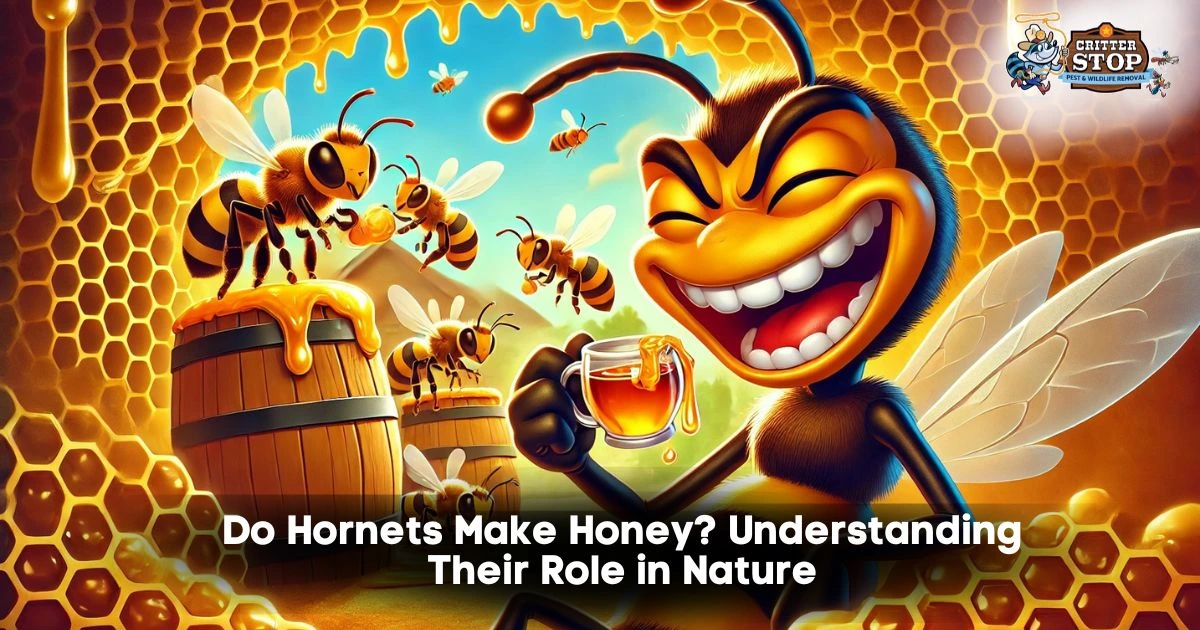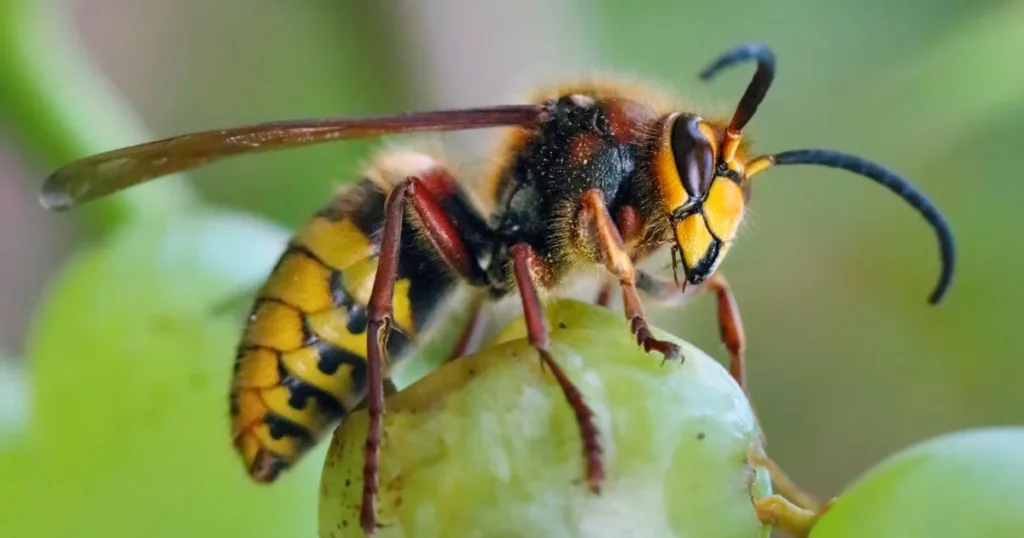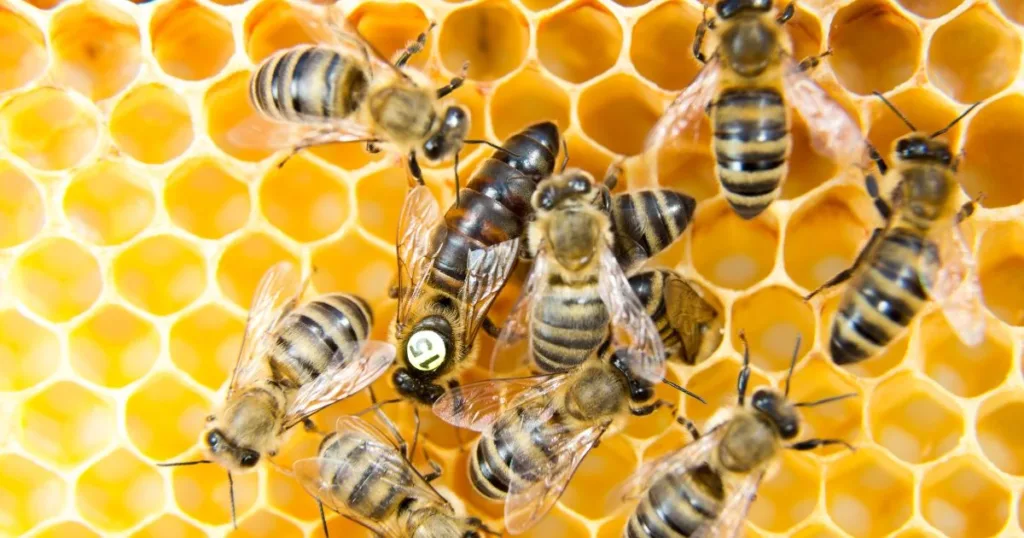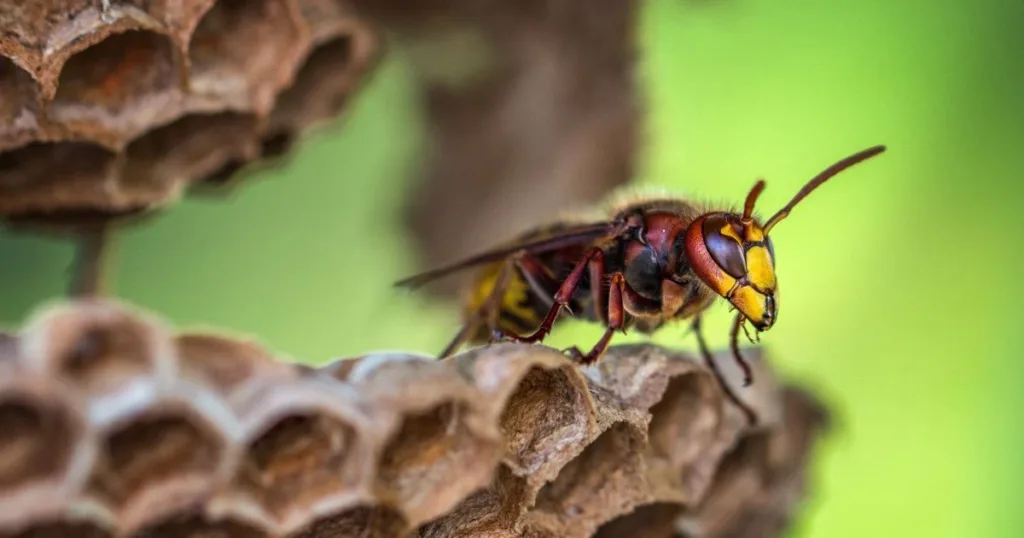
Do hornets make honey? Hornets are often confused with honey bees, but they have different roles in the ecosystem. Hornets do not make honey like bees do. Instead, they primarily focus on hunting insects and feeding their larvae. Understanding this distinction can enhance your appreciation for the variety of creatures in nature.
While honey bees are known for producing honey from nectar, hornets create a paper-like substance from chewed wood fibers to build their nests. Their diet and behavior differ significantly, impacting their environmental role. You may find it intriguing to learn how hornets contribute to pest control despite not producing the sweet treat we associate with honey production.
As you continue reading, you will uncover more about the fascinating world of hornets, their behavior, and their ecological significance. This knowledge may change how you view these often-misunderstood insects.

Hornets exhibit specific dietary needs and behaviors essential for their survival. Exploring their nutritional requirements and nest activities can help you better understand their daily lives and feeding habits.
Hornets primarily consume proteins and sugars. Their diet mainly consists of:
Hornets do not produce honey like bees. Instead, they rely on these food sources to sustain themselves and their colonies. Adult hornets often share food with larvae, which secrete a sugary substance that the adults consume, ensuring a symbiotic relationship within the nest.
Inside the nest, hornets engage in various essential activities. One notable construction method is using chewed wood fibers mixed with saliva. This process creates a paper-like structure that offers insulation and protection.
Nest activities also include:
These behaviors collectively ensure the survival and sustenance of the hornet colony while fostering an environment conducive to raising their young.

Hornets and honeybees differ significantly in their behavior and hive structures. While both are social insects, their resource-gathering methods and hive organization vary greatly.
Honeybees create complex hives that emphasize efficiency and cooperation. Their colonies can house thousands of bees with a clear hierarchy: a single queen, numerous workers, and drones. Worker bees are responsible for foraging, nursing, and maintaining the hive, while drones primarily exist to mate with the queen.
Resources are stored in hexagonal wax cells, where honey is produced from nectar. Honeybees also produce beeswax to construct their hives. In contrast, hornets do not produce honey. Their nests, made from chewed plant fibers mixed with saliva, serve different purposes. Honeybees’ hives are more stable and long-lasting than hornet nests, which are temporary and often abandoned after one season.

Dealing with hornets on your property can be challenging. Their presence may pose a risk due to aggressive behavior, especially if they feel threatened.
It's essential to identify the type of hornet you are dealing with. You may wonder, do hornets make honey? The answer is no; they do not produce honey as bees do. Instead, hornets focus on catching live prey for their larvae.
If you encounter a hornet nest, consider contacting professionals. Here are some reasons to call in experts:
Critter Stop is an excellent choice when you need help. Their team specializes in humane wildlife removal and has outstanding customer reviews. You can trust them for high-quality work and exceptional service.
For peace of mind, call Critter Stop at (214) 234-2616 for a free inspection. Don't let hornets disrupt your home; expert help is just a call away.
This section addresses common inquiries regarding hornets and their behavior concerning honey production. You will find clarity on their ecological roles, research findings, and insights into the variations between hornet and bee honey-making processes.
Hornets do not produce honey in the same way bees do. Instead, they focus on predating on other insects to feed their larvae. Their ecological role includes controlling pest populations rather than making honey stores.
Limited research indicates that hornets do not produce honey like honeybees. Studies focus more on their predatory behavior and social structures. Most findings suggest that hornets primarily use nectar for energy rather than honey production.
Hornets, like bees, lack the specialized structures and processes necessary for honey production. Bees convert nectar into honey through enzymatic processes and storage in wax cells. Hornets primarily consume nectar without transforming it into a stored product.
Hornets do not create honey to sustain their colonies. They rely on protein from captured prey and sugars from nectar. This diet supports their growth and development rather than needing honey for energy.
There is no substantial evidence that hornets make honey. However, understanding their feeding habits highlights their role in the ecosystem as predators, challenging preconceived notions about their ecological contributions.
Visit our Critter Library and learn more about our furry friends